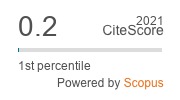Measuring the Effect of E-Learning during Pandemic covid 19 Among Rural Students: The Case Study of Rural Students Residing in Chengalpattu
Keywords:
Rural education, distance education, Smart classroom, Internet, online teaching, student attitude, teacher methodology, World Wide Web, Government school.Abstract
The global pandemic, COVID-19 have initiated the social distancing and digital platforms to enhance the E-Learning method. People started practicing staying indoors and being idle within indoor may lead to mental stress. To make people more involved and stress free, online learning is playing an important role. In this pandemic situation, online mode of learning is the best solution. Professors and other teaching professionals are making use of the virtual teaching platforms to teach from their home with all effective tools needed, which indeed makes the online sessions effective as the traditional ones. Pandemic has changed the whole process of teaching and learning. This has made learners to stay at their place and connect virtually for a long period of time and which in turn obstructs teaching and learning process. This Research framework emphasizes on the beneficial aspects of online learning at the time of pandemics. The continuous learning process emphasized through online learning with some digital tools and techniques. Education is being transformed not only in private schools, but it is being slowly setting benchmark in government schools also. E-learning technology is now creating new avenues and transforming the education sector. The preparation of teachers for online classes has changed. As the rural area Schools and colleges are getting adapted to the technological advancement e-learning is getting into a positive transformation. It is a great motivating factor that the rural area is trying to adapt to the digitally enhanced learning method from the traditional methods. Even though having many benefits in E-Learning there are some obstacles in online learning, but still digital learning has employed. The one factor of consent is that the rural area students are not fully equipped with technological factors like uninterrupted power supply, internet and mobile devices. Student behavior and attitude has changed in online classroom. Still many rural areas in India are trying to find solution for the above challenges to become eligible to receive education completely online or in digital format.



